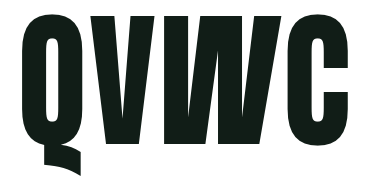Maddison Chisholm: Summer intern at QVWC
Jessamy Gleeson: Can you tell us a little bit about where you’re from, and what keeps you busy when you’re not interning at the Queen Victoria Women’s Centre?
Maddison ChishoIm: I am a proud Yorta Yorta, Wiradjuri and Gamilaraay woman, born and raised in Shepparton on Yorta Yorta Woka (Yorta Yorta country). I am currently studying a Bachelor of Arts, specialising in Film & Screen Studies at Monash University. What keeps me busy outside of my internship consists of reading, writing, filming, exploring and most of all my family: my parents, my younger brother, my grandparents, my cousins, aunties and uncles.
What lead you to study arts and film?
Growing up I was always into creative writing. Ever since I was young, I was churning out stories about myself, my family or just whatever had come to my imagination. Throughout the last few years of high school most of my teachers were encouraging me either to enter writing competitions, put my stories out into the world and especially, to never neglect my writing. I was always a very reserved person, so this concept of sharing what was inside my head felt very odd. Once I discovered film at a University summer camp and met an Indigenous screenwriter and director, I realised that my writing ideas could be transformed visually.
The biggest challenges at University so far is being one of the only Indigenous kids in my class. It’s really difficult to develop a sense of connection and understanding when you feel alone. The other challenge is understanding how to be an Aboriginal or Torres Strait Islander student completing studies in a westernised institution, and breaking down the barriers of colonial constructs simply through existing.
It’s also learning how to transfer Indigenous knowledge and wisdom into way that is understandable for non-Indigenous people. The content we examine and learn in class doesn’t contain many, if not any, Indigenous films, screenplays, and stories, or most of all Indigenous representation. It should be focussed on the perspectives and stories of Indigenous people on the land of which we are on and break away from the stereotypes and expectations of what we should be defined as, as Aboriginal or Torres Strait Islander People.
What do you think are some of the ways that films could work to tell the stories of Aboriginal and Torres Strait Islander People?
Personally, storytelling is the most vital aspect as it is magical and sacred. However, not only is there still an infiltration of ‘whiteness’ throughout the process of learning aspects of film such as screenwriting, casting, acting, and ideas, but there is still no freedom to be completely unshackled from the chains that hold us down as beings. The ways that film could develop to tell Aboriginal and Torres Strait Islander stories doesn’t begin in the process of developing an idea for a film, it starts in the real world: in your own house, in the classroom, in the workplace and so on. Films, stories and the ‘real world’ revolve around colonisation alone. It’s everywhere and there’s a reason why it is the way it is.
What do you want to achieve – both with the degree, but more broadly with the work you wanted to do outside and beyond it?
My parents had to sacrifice a lot of their identity to get where they want in life and be able to give and share opportunities to myself and my younger brother. Now for me, it’s about being able to do things for myself and also give and create those opportunities to others in the future. I have a younger brother who has just turned seven, and we have 12-years difference. So, I keep asking myself what can I achieve now so that when he goes to university and faces the world, what will look different?
What do you think are some of the issues that are important for younger women, non-binary and gender non-conforming people in Victoria?
For me, one of the things is how we’re represented, especially on social media. Why I don’t use social media myself is because the way I was being represented as a woman online, and then when I went out into the real world, I wasn't accepted for who I really was. I didn't meet the expectations of who people really wanted me to be. It’s really difficult because social media is so within reach – literally at our fingertips – people take social media as unwritten rules and reality.
However, there's always pros and cons to social media and the internet itself. But it’s that categorisation – the putting people into boxes – that I don’t enjoy. Over the past few years, especially with the rise of social media, we now have access to everything, and we are constantly needing to make sure we break things down and analyse them – it seems that people let every single problem affect them and absorb into who they think they are. I think it’s a big challenge when you are presented as something different compared to an ‘online presence’.
What do you want to achieve through your internship with the QVWC?
It's not only having the opportunity to work at the Centre: it’s also about the bigger picture. It's so people like me in the future can come work in these places and have these opportunities to share perspectives and stories. I want to focus on what I can give in the future, so it’s not just a 12-week internship, but a long-term thing for me, my family, my friends and the community.
What I can do here contributes to the Centre, and gives back to the Centre, then creates opportunities in the future for my community to link back in, so it won’t be difficult or hard for them and they won’t face the challenges I had to. That’s what the bigger picture is about.
Interview by Jessamy Gleeson

